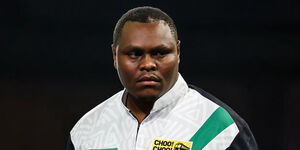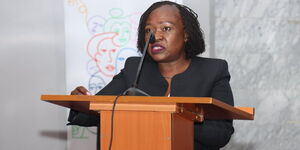Paris is set to pay a heartfelt tribute to Ugandan marathoner Rebecca Cheptegei by naming a prominent sports facility after her, Mayor Anne Hidalgo announced on Friday. This move comes in the wake of a harrowing attack that claimed Cheptegei's life earlier this week.
Cheptegei, 33, was the victim of a brutal assault in Kenya, where her boyfriend, Dickson Ndiema, doused her in petrol. The attack occurred just days after her participation in the Paris Olympics, where she finished 44th in the marathon.
She passed away on Thursday at the Moi Teaching and Referral Hospital in Eldoret due to multiple organ failure, caused by burns covering more than 75 per cent of her body.
Mayor Hidalgo expressed the city's commitment to honour Cheptegei’s legacy, stating, “She dazzled us here in Paris. We saw her. Her beauty, her strength, her freedom, and it was in all likelihood her beauty, strength and freedom which were intolerable for the person who committed this.”
Hidalgo further emphasised that the new sports venue would serve as a lasting reminder of Cheptegei’s contribution to the Olympic spirit and a symbol of the struggle for equality.
Cheptegei's tragic demise has reverberated across the globe, prompting widespread outrage and calls for justice. Kenyan police are preparing to charge Ndiema once he recovers from his injuries. He remains hospitalised with burns to 30 per cent of his body, sustained during the attack.
The assault on Cheptegei is part of a disturbing trend of extremism against female athletes in Kenya. This is the third high-profile case since October 2021, following the demise of Agnes Jebet Tirop and Damaris Muthee Mutua. Tirop, a world-record holder in the 10-kilometre race, had her life taken away by her husband, while Mutua was found strangled in Iten.
Njeri wa Migwi, executive director of the Kenyan nonprofit Usikimye, highlighted the broader issue of GBV in Africa. “This tragic incident is part of a larger, disturbing pattern against women, including high-profile female athletes,” she stated. Migwi called for stronger protections and more accountability, stressing the need for swift justice in Cheptegei’s case.
The outpouring of grief from the athletic community reflects the impact of Cheptegei’s loss. World Athletics President Sebastian Coe described her demise as a profound loss to the sport, noting, “Rebecca was an incredibly versatile runner who still had lots left to give on the roads, mountains and cross country trails.”
Cheptegei's family and supporters have condemned the police's handling of previous intimidation reports against Ndiema. Joseph Cheptegei, Rebecca's father, accused authorities of failing to act on his concerns about his daughter’s safety. He urged for accountability, stating, “We reported our concerns about Ndiema’s behaviour, but nothing was done. This is a critical moment to create a society that respects and protects everyone’s dignity.”
As Paris prepares to dedicate a sports venue in her honour, Cheptegei’s legacy will serve as a powerful reminder of the struggle against GBV. The facility will not only commemorate her achievements but also stand as a beacon for equality, mirroring the values upheld by the Olympic and Paralympic Games.
The shocking nature of Cheptegei’s demise points to a pressing need for reforms and increased protections for women, both in sports and beyond.












